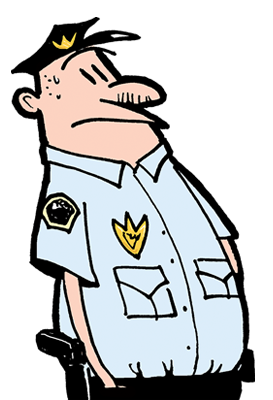Police psychology
How Fatal Encounters affect officers forced to kill in the line of duty
By D. Brian Burghart
Darren Wilson, the Ferguson Police Officer who shot and killed Michael Brown, the unarmed African-American teenager in the St. Louis, Missouri, suburb has received a ration of hate from around the country.
And he may be the only person in the country who knows whether it’s deserved. It’s certainly not as black and white as it was presented in the early rush of reportage.
ABC News reported this exchange on Aug. 19 from an anonymous friend of Brown’s: “The whole situation is a tragedy for both Michael Brown and his family, and Darren and his family,” Brown’s pal said. “Both of their lives are ruined. I can tell he’s struggling. I can tell this is really hard on him. He’s been very careful about who he talks to, so he hasn’t spoken much about the situation.”
Reno Deputy Police Chief Byron “Mac” Venzon suffered similarly after killing a person in the line of duty, though he didn’t have the hate of 50 million people to compound it.
For the rest of the story, visit the Reno News & Review site
House of pain
By D. Brian Burghart
Kenny Stafford came back from Iraq a changed man. He was never to heal, though, as he was killed by police on July 11, 2013.he once social and gregarious man that Aimee Stafford met in ninth grade was withdrawn, didn’t want to hang out with friends. The caring, funny and strong warrior didn’t want to listen to music—he used to like everything but country—didn’t want to read his favorite fiction by the likes of Stephen King and Dean Koontz, didn’t want to watch sports; the joy seemed drained from his life.
“He was trying to adjust back into civilization, and I figured he had saw and done some things over there that are probably hard to get past, so I just wrote it off as that,” said his widow, Aimee. “But then when we got transferred to Fort Lewis, Washington, that’s when he started losing a lot of weight. He couldn’t sleep. He wouldn’t eat. He would get agitated a lot, and he lost 65 pounds in six months.”
Kenny didn’t even want medical attention. His petite and pretty wife had to pester the 6-foot-3 soldier until he finally consented to see a doctor.
“They said he was depressed and put him on medication for that, and then they were doing some other things for PTSD,” she said. “And then we came up here to Reno for my brother’s year anniversary, and he was OK until the night of the anniversary of my brother’s murder.”
For the rest of the story, visit the Reno News & Review site.
Head wounds
In that dark spot where all the circles overlap—family members of people killed by police who work with police—there would be one name: Steven Ing of Reno.
Ing is a marriage and family therapist, who, almost as a primary job, works with sex offenders who for one reason or another are involved in the Nevada prison system. He believes they can be rehabilitated, an unorthodox view. But maybe growing up as the child of a notorious Reno thug, Jimmy Ing, you’d have to believe anyone can be rehabilitated—at least until they are killed by police.
Ing would certainly have a unique perspective on the effects on families of people killed by law enforcement. He’s singular in many ways. He’s a financial success after a childhood where he’d lie in bed, screaming with a pillow over his head while his father beat his mother. His father was bad, bad. He was reputed to have beaten a man almost to death and then finishing the job by putting him in a metal barrel, pouring oil over him and setting him on fire.
For the rest of the story, visit the Reno News & Review site.

